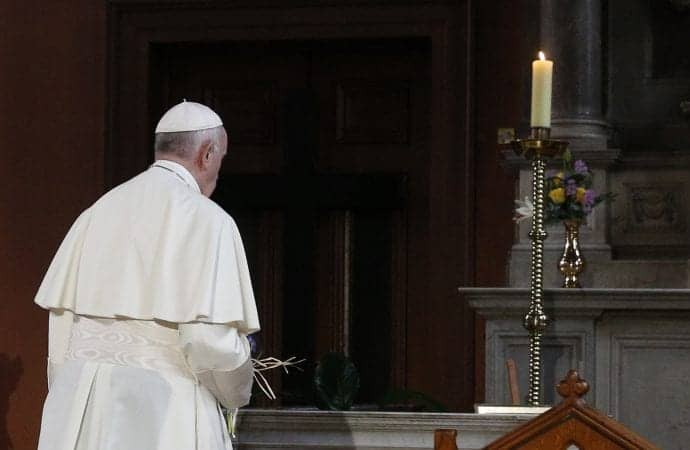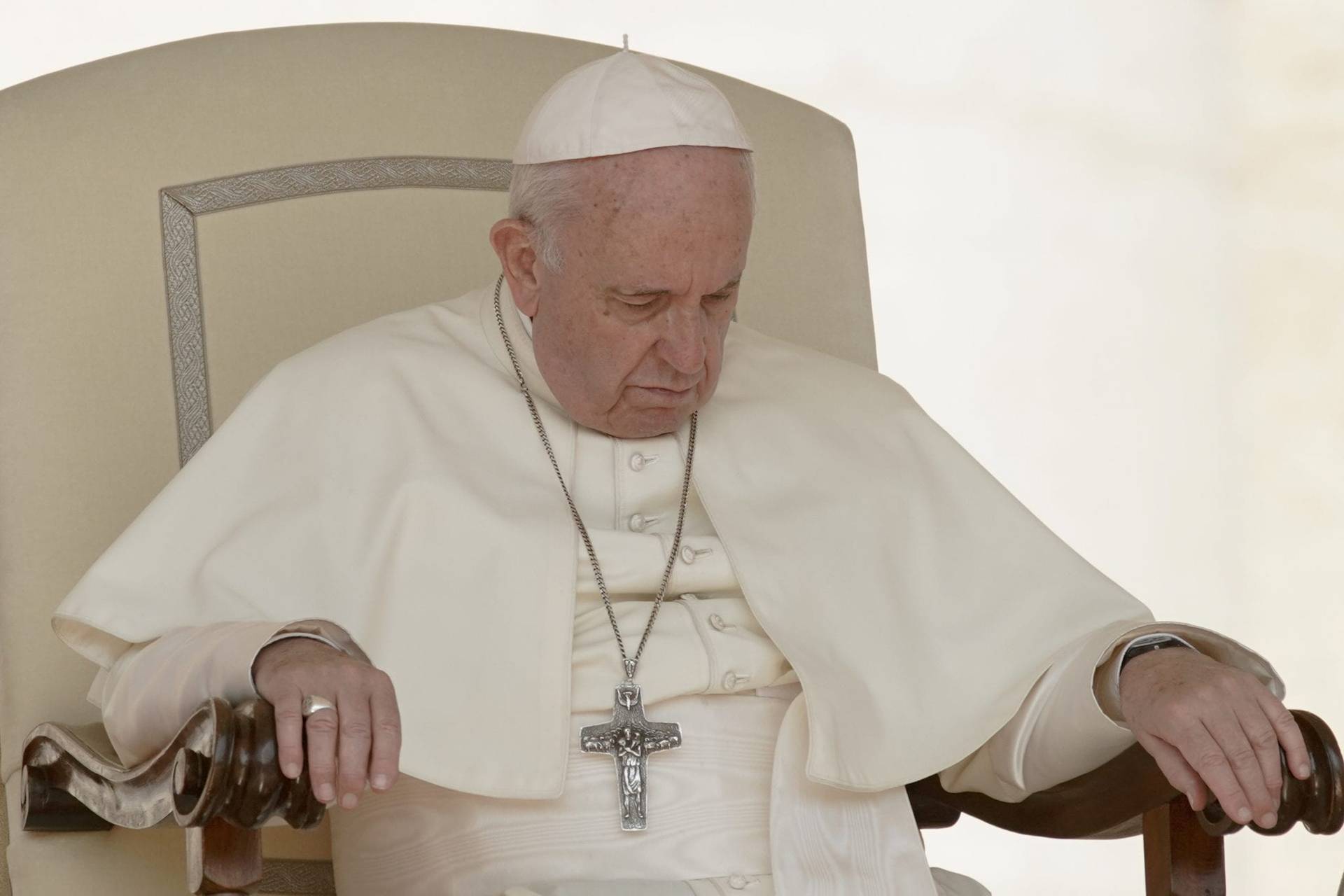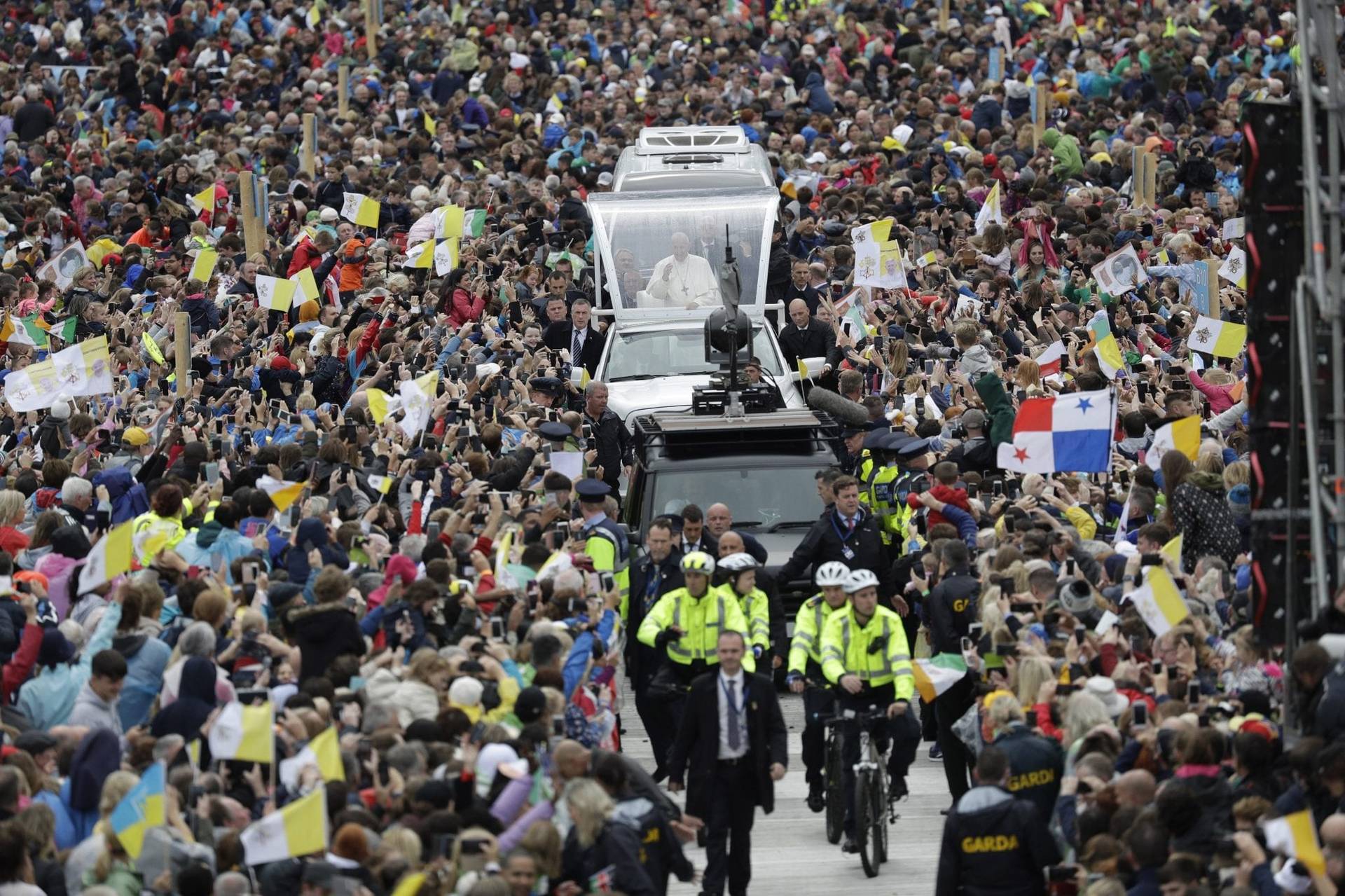DUBLIN – Less than 24 hours before Pope Francis’s arrival in Ireland, a Pastoral Congress at the Vatican-sponsored World Meeting of Families wraps up today in Dublin, striving to offer an x-ray of the various challenges facing families in the post-modern world.
From child sexual abuse to divorce, domestic violence and imprisonment, the summit tried to cover it all. The following is a sampling of happenings in and around the World Meeting as the countdown to the pontiff’s arrival winds down.
Fallout for families of people behind bars
Auxiliary Bishop Eamonn Walsh of Dublin, who served himself as a prison chaplain for 13 years, opened a panel on the impact of imprisonment on families by noting a stark conflict that often strains families on both sides when someone ends up behind bars.
“In every sentencing I’ve ever been at, there’s one mom of the victim urging strictness, and another mom of the offender begging for mercy,” he said.
Sister Breda Coman, who serves as a chaplain at Ireland’s Midlands Prison, surveyed the various ways families are affected when a loved one is incarcerated.
“The impact is different for every family,” she said. “Some live in dread and shock, for some it’s not a new experience, and for others it’s actually a welcome relief.”
For everyone, however Coman said, it takes a toll.
“Prison is tough on the relatives,” she said. “The loss of someone you love is always heartbreaking, but in this case there are no grieving rituals and the pain isn’t regarded as legitimate in the same way as other losses.”
Other chaplains offered practical guidance, such as how to prepare children of inmates for what it will be like to visit mom or dad in prison, and how parishes could act as support systems for families getting ready for the release of a loved one.
Irish bishops spurn fossil fuels
On the heels of Francis’s arrival tomorrow, Ireland’s Catholic bishops offered him a preemptory housewarming gift, of sorts, by announcing that they would be divesting from fossil fuels.
“The Bishops’ Conference has signed the global Catholic fossil free pledge and today begins the process of divesting its resources from all fossil fuels,” said a statement from Bishop William Crean of Cloyne.
“In doing so, we are responding directly to Pope Francis’s call in his 2015 encyclical letter Laudato Si’ (on care for our common home) by moving away from fossil fuels ‘without delay’,” Crean said.
“Avoiding further climate change and protecting our common home requires a major change in direction, as Pope Francis outlines in Laudato Si’,” he continued.
“Our announcement, whilst modest in terms of financial resources, is more than just symbolic. It is about joining the growing social movement, led by young people across the world, calling for the realignment of our financial policies to safeguard their future. It makes good sense and it is the least that we can offer our future generations.”
While Francis’s 2016 apostolic exhortation Amoris Laetitia served as the touchstone for the World Meeting of Families programming, his 2015 encyclical Laudato Si’ received considerable attention on a number of panels, along with practical offerings such as eco-spaces for prayer and reflection organized by the Global Catholic Climate Movement, which has had an active presence throughout the three-day Congress.
No ‘dumbed-down, dialed-down’ ideals
In a keynote talk titled “Pope Francis and the Gospel of the Family,” Auxiliary Bishop of Los Angeles, Robert Barron, said Chapter 8 of Amoris Laetitia is about “formation in the moral life,” and is meant to be read in continuity with chapter 7 on the building of virtue.
He said that from the beginning, the way the chapter has been characterized, with an emphasis on whether divorced and civilly remarried people can or can’t have communion, has been unhelpful, and that the pope is “not interested in spiritual mediocrity…he wants people to be saints.”
“We’re not interested in a dumbed-down, dialed-down ideal,” but he is also aware of the struggles that come with trying to live virtue in the day-to-day context with all the pressures and challenges that come with it.
In response to this struggle, Barron said there are two reactions the Church can have: “casting off,” or “reinstating.” And Francis, he said, is more interested in reinstatement.
For Barron, this is not “relativity in terms of the Church’s moral teaching,” but is an effort to show people what to do when they fall short of the ideal.
Noting how there was a strong influx of young men entering the seminary from the “John Paul II generation,” meaning people who for the most part grew up during the Polish saint’s time in office, Barron said that in his experience, these men showed great ambition in wanting to live an upright life, but the “shadow side” is that “they often got deeply frustrated when they fell short of the ideal.”
“What do you do when you fail? I read Francis as being sensitive to that fact,” he said, explaining that he reads Chapter 8 as Francis’s response to this question, which follows on “the path of mercy and reinstatement.”
In a separate panel on “The Family as an Agent of Peace in a Turbulent World,” Carl Anderson, Supreme Knight of the Knights of Columbus, said peace is “not simply the absence of violence or disruption,” but is rather “something positive.”
“We can also see tranquility in the family as the tranquility of order among its members,” he said, adding that the pursuit of peace goes back to the fundamental “vocation for every human being to love.”
“The essence and role of the family are, in the final analysis, [to] love,” he said.
The family and Christian unity
During a panel at the World Meeting of Families focusing on Christian unity, Bishop Brian Farrell, the number two official at the Vatican’s Pontifical Council for the Promotion of Christian Unity, said the Church still has “big ecumenical questions” to tackle.
One question is interdenominational marriage and whether a non-Catholic partner can be admitted to communion, the bishop said. Last spring, the German bishops’ conference tried to “open a wider door” by providing guidelines for married couples to allow Protestant partners to have access to Communion.
The Vatican’s Congregation for the Doctrine of the Faith rejected the proposal, but Farrell said that the door is not quite closed.
“There is a process of us still learning what is within the teachings of the Second Vatican Council,” the bishop said. “The Church is learning, thinking, developing. We have not reached the end of this conversation as of yet.”
Another question is the approach to the sacramentality of marriage, Farrell said, where Catholics can be inspired by other denomination’s wedding rituals.
Recent examples of inter-Christian dialogue have been “a huge success,” he continued, especially Francis’s visit to Geneva for the World Council of Churches and the ecumenical prayer for peace in the Middle East where the pope met with Christian patriarchs in Bari, Italy.
“We have to see the whole of the baptized world as a fundamental unity,” Farrell said, “and not let the differences between us stop us from working, walking, praying together.”














